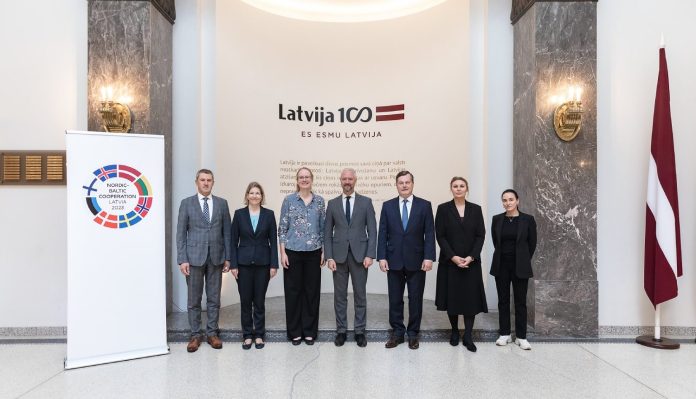On 15 September 2023, the Latvian Ministry of Foreign Affairs hosted the first meeting of the Nordic and Baltic (Nordic-Baltic Eight, NB8) Directors for Arms Control, Disarmament and Non-Proliferation.
As he opened the meeting, Raimonds Oškalns, Director of the Security Policy Department at the Ministry of Foreign Affairs, emphasised: “Latvia supports closer NB8 cooperation so that our shared concerns, interests and values would be heard on the international arena. It is in the interest of NB8 countries to have a security environment that is dominated by trust, predictability and clear rules strictly adhered to by all the countries.”
Russia’s aggression against Ukraine has made the most direct impact on the rules-based international order. Arms control treaties and mechanisms focused on the strengthening of security and trust are now facing existential challenges. The directors also addressed matters concerning strategic stability, highlighting the importance of the New START strategic arms reduction treaty and China’s involvement in arms control in its capacity of a nuclear power.
Views were also exchanged on the nuclear security situation at Ukraine’s Zaporizhzhia nuclear power plant, the fulfilment by Iran of its obligations under the Joint Comprehensive Plan of Action (JCPOA) and North Korea’s ballistic missile tests. The Directors agreed that effective control and non-proliferation of weapons of mass destruction and conventional arms contributed to global and regional security.
The NB8 (Nordic–Baltic Eight) cooperation format comprises Denmark, Estonia, Finland, Iceland, Latvia, Lithuania, Norway, and Sweden. Latvia is the coordinating country this year, and one of its priorities in the NB8 coordination effort is related to the strengthening of a rules-based international order. At the suggestion of Latvia, it was for the first time that the NB8 countries discussed current issues of arms control in this format.

